This month, changes to the main Western sanctions programs have continued to focus on targeting Russian trade flows, financial networks, senior Russian government and military figures, as well as their luxury assets. Significant new measures have included:
- On 1st June, the EU agreed the details of its 6th package of sanctions first announced last month. Council President Charles Michel confirmed that 75% of the Russian oil imported into Europe will immediately be targeted by trade restrictions, with 90% of imports to be covered by the end of the year. The new measures came into force on 6th President Michel’s announcement was accompanied by a brief overview of the EU’s enforcement actions to date – by 8th April 2022, the EU had frozen €6.7 billion of assets, with a further €22.8 billion otherwise blocked through the enforcement of EU measures against oligarchs by individual member states.
- The EU also strengthened its Belarussian sanctions programme, removing the Belarusian Bank for Development and Reconstruction from SWIFT, subjecting 24 entities to export restrictions related to the military and technology sectors and designating eight new entities, including a potash factory and a tobacco factory, and 12 new individuals.
- On 7th June OFAC announced a new raft of designations pursuant to Executive Order 14024, targeting sanctions evasion networks and luxury assets of previously designated people, including identifying and freezing four yachts linked to President Putin. Additional designations have targeted Monaco yacht brokerage Imperial Yachts SARL, the artistic director of the St. Petersburg Music House and his wife, as well as a handful of Russian government officials.
- On 16th June, OFSI added 12 people to its Russia sanctions list, including Patriarch Kirill, head of the Russian Orthodox Church, as well as a number of senior military and government figures, including Sergey Vladimirovich Savostyanov, deputy of the Moscow city Duma, and four military colonels of the 64th Separate Motorised Rifle Brigade. Also designated were three Russia-based and three Myanmar-based entities deemed responsible for supplying Russian aircraft parts to the Myanmar Armed Forces. On 29th June, another eight people, including Russia’s second richest man, Vladimir Potanin, were added to the Russia list.
- On 30th June, the UK House of Commons Foreign Affairs Committee published its report “The Cost of Complacency: illicit finance and the war in Ukraine”, which included amongst other things an analysis of UK’s Russia sanctions regime. The report recommended that asset freezes should not become a form of “criminal justice light”, where assets are held indefinitely, and that the Government should provide the sanctions unit with additional resources for the duration of the Ukraine crisis.
- In non-Russia related news, following last month’s meeting of the UN security council regarding the possibility of strengthening measures against North Korea, the US tabled a resolution in response to the country’s recent ballistic missile launches. The resolution was not adopted after being vetoed by Russia and China.
- Non-Russia related designations have included OFAC’s sanctioning of North Korean national John Yong Nam and the Air Koryo Trading Corporatoin for their involvement in North Korea’s WMD and missile programs, as well as Marinko Cavara, President of the Federation of Bosnia and Herzegovina, and Alen Seranic, the Rebpublika Srpska Minister of Health and Social Welfare, for undermining the Dayton Peace Accords and democratic processes. Cavara has been accused of neglecting his duty to resolve a dispute pertaining to the federation’s judiciary by failing to nominate judges to fill vacancies on its Constitutional Court. Seranic is accused by US authorities of undermining the authority of the state-level medical agency by lending his support for the proposed adoption of a Srpska Law on Medicines.


